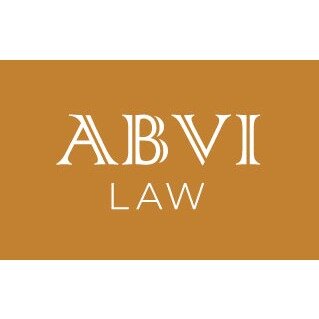Best Real Estate Contracts and Negotiations Lawyers in British Virgin Islands
Share your needs with us, get contacted by law firms.
Free. Takes 2 min.
Free Guide to Hiring a Real Estate Lawyer
Or refine your search by selecting a city:
List of the best lawyers in British Virgin Islands
About Real Estate Contracts and Negotiations
Real estate contracts and negotiations can be complex, involving various legal, financial, and procedural considerations. Understanding the intricacies of these processes is crucial, especially when dealing with high-value transactions such as property sales, leases, or development agreements. Well-drafted contracts ensure clarity of terms, safeguard the interests of all parties involved, and help mitigate potential disputes.
Law in British Virgin Islands: A Brief Overview of Real Estate Contracts and Negotiations
In the British Virgin Islands (BVI), real estate contracts and negotiations are governed by a combination of local legislation and common law principles. The Land Registry Act, Registered Land Ordinance, and Conveyancing and Law of Property Act are some key legislations that shape real estate law in the territory. The BVI's legal framework ensures that all real estate transactions are performed transparently, with proper documentation and registration requirements. This provides buyers and sellers with a reliable and secure environment for conducting property transactions.
Why You May Need a Lawyer
Engaging a lawyer for real estate contracts and negotiations in the BVI can be beneficial in many scenarios, such as:
- Buying or selling property, especially when dealing with large investments.
- Drafting or reviewing contracts to ensure compliance with local laws.
- Negotiating terms of a lease or property sale and purchase agreement.
- Resolving disputes or legal issues related to real estate ownership or use.
- Conducting due diligence to verify property titles and assess potential risks.
Local Laws Overview
The legal landscape for real estate in the British Virgin Islands involves several key aspects:
- Land Ownership: Title registration is a critical component, with the Land Registry maintaining ownership records.
- Foreign Investment: Non-BVIslanders often require a Non-Belonger Land Holding License to buy property.
- Contractual Obligations: Contracts must be in writing and signed by all parties. The Statute of Frauds applies.
- Property Taxes: Stamp duty and other land-related taxes are applicable to real estate transactions.
Frequently Asked Questions
What documents are needed to sell property in the BVI?
Typically, you need the title deed, a Non-Belonger Land Holding License (if applicable), a land valuation, and a sale and purchase agreement.
Do I need a survey before purchasing a property?
Yes, conducting a land survey is advisable to confirm the property's boundaries and identify any encroachments or easements.
Can foreigners buy real estate in the BVI?
Yes, but they require a Non-Belonger Land Holding License. This process involves application and approval by the local government.
What is included in a standard real estate contract?
A standard contract typically includes property description, price, payment terms, legal contingencies, and closing date.
How long does it take to complete a real estate transaction?
The timeline varies but generally takes 30 to 90 days, considering due diligence, contract negotiation, and regulatory approvals.
Are real estate agents regulated in the BVI?
Yes, real estate agents are regulated, ensuring they adhere to professional and ethical standards in their dealings.
What is stamp duty, and who pays it?
Stamp duty is a tax on property transactions. The buyer typically pays it, calculated as a percentage of the purchase price.
Can I negotiate the terms of a real estate contract?
Absolutely. Terms like price, payment schedule, and contingencies can be negotiated before finalizing the contract.
What happens if a party breaches a real estate contract?
A breach can lead to legal action for specific performance or damages. The contract might also outline specific remedies.
How is property ownership transferred in the BVI?
Ownership is transferred through registration at the Land Registry, following the completion of the sale and purchase agreement.
Additional Resources
For further assistance, you may consider consulting the following resources:
- British Virgin Islands Land Registry: The official body for land title records and registration.
- British Virgin Islands Financial Services Commission: Offers guidance on regulations affecting property and investment.
- BVI Bar Association: Provides a directory of licensed legal practitioners specializing in real estate law.
Next Steps
If you need legal assistance with real estate contracts or negotiations in the BVI, consider the following steps:
- Consult with a licensed attorney specializing in BVI real estate law to explain your situation.
- Gather relevant documents and information related to your property transaction.
- Prepare a list of questions or concerns to discuss with your lawyer.
- Explore potential legal options or strategies with professional guidance tailored to your case.
Professional legal advice ensures that your real estate transactions are conducted smoothly and align with local laws and regulations.
Lawzana helps you find the best lawyers and law firms in British Virgin Islands through a curated and pre-screened list of qualified legal professionals. Our platform offers rankings and detailed profiles of attorneys and law firms, allowing you to compare based on practice areas, including Real Estate Contracts and Negotiations, experience, and client feedback.
Each profile includes a description of the firm's areas of practice, client reviews, team members and partners, year of establishment, spoken languages, office locations, contact information, social media presence, and any published articles or resources. Most firms on our platform speak English and are experienced in both local and international legal matters.
Get a quote from top-rated law firms in British Virgin Islands — quickly, securely, and without unnecessary hassle.
Disclaimer:
The information provided on this page is for general informational purposes only and does not constitute legal advice. While we strive to ensure the accuracy and relevance of the content, legal information may change over time, and interpretations of the law can vary. You should always consult with a qualified legal professional for advice specific to your situation.
We disclaim all liability for actions taken or not taken based on the content of this page. If you believe any information is incorrect or outdated, please contact us, and we will review and update it where appropriate.
Browse real estate contracts and negotiations law firms by city in British Virgin Islands
Refine your search by selecting a city.














